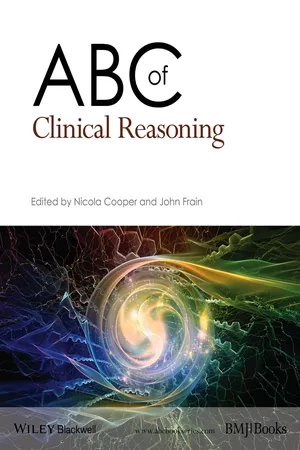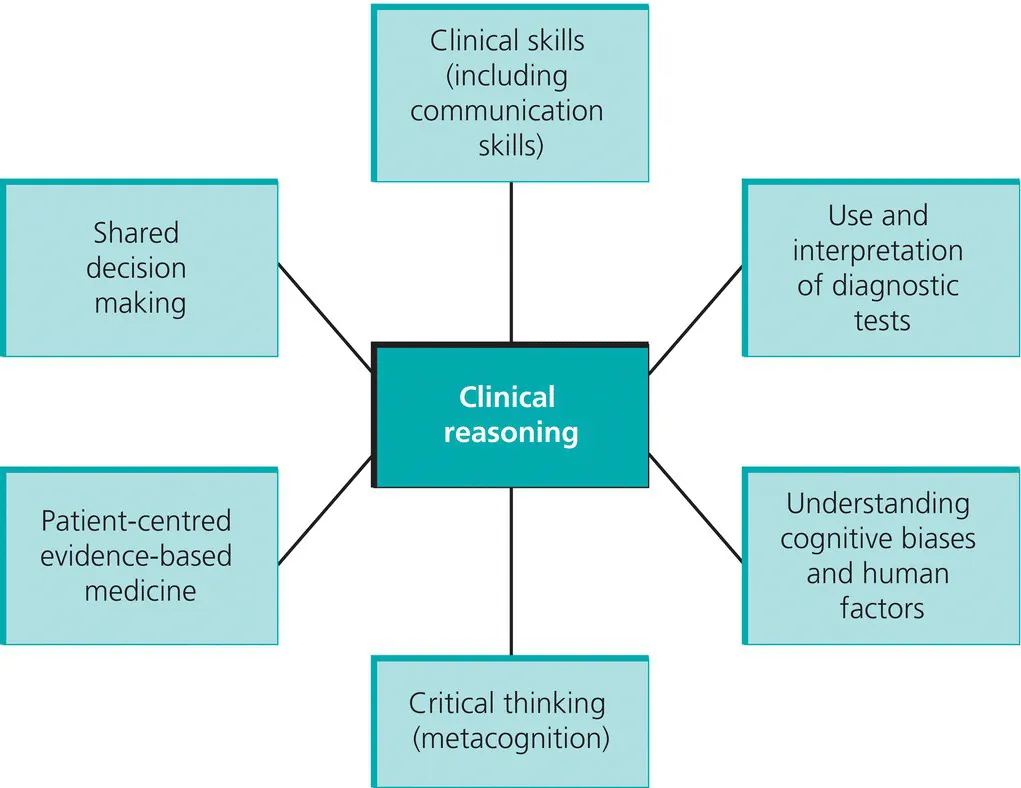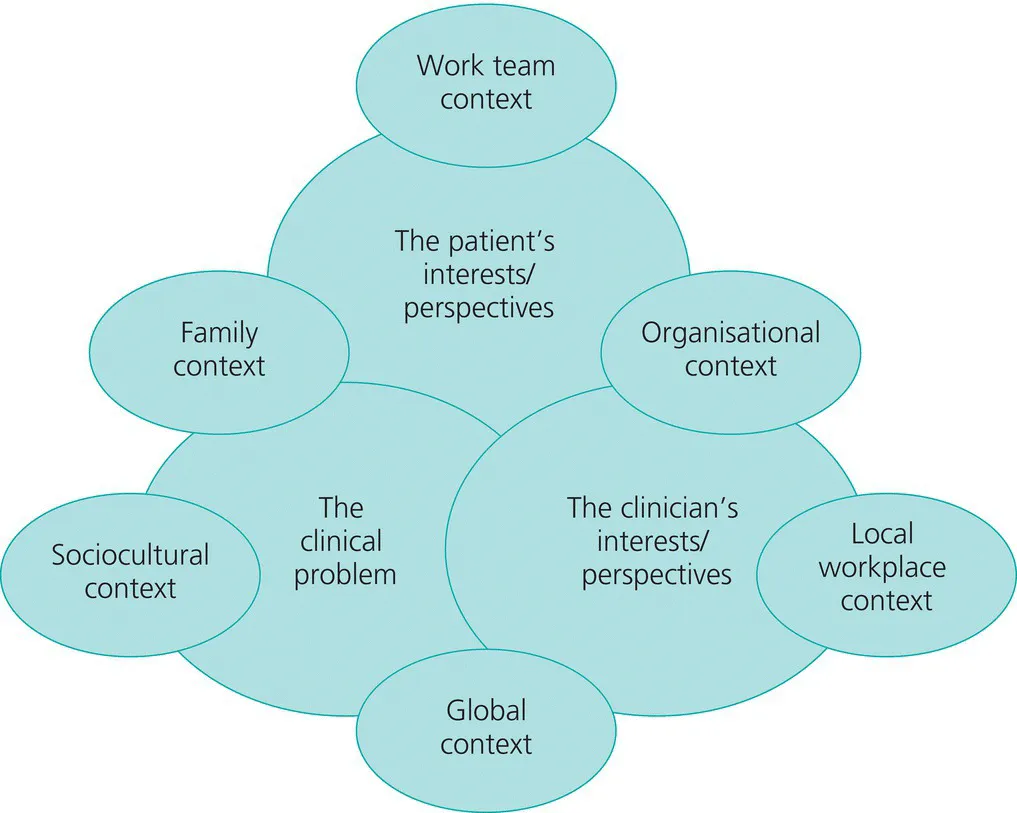
- English
- ePUB (mobile friendly)
- Available on iOS & Android
ABC of Clinical Reasoning
About this book
Being a good clinician is not just about knowledge – how doctors and other healthcare professionals think, reason and make decisions is arguably their most critical skill. While medical schools and postgraduate training programmes teach and assess the knowledge and skills required to practice as a doctor, few offer comprehensive training in clinical reasoning or decision making. This is important because studies suggest that diagnostic error is common and results in significant harm to patients – and errors in reasoning account for the majority of diagnostic errors.
The ABC of Clinical Reasoning covers core elements of the thinking and decision making associated with clinical practice – from what clinical reasoning is, what it involves and how to teach it. Informed by the latest advances in cognitive psychology, education and studies of expertise, the ABC covers:
- Evidence-based history and examination
- Use and interpretation of diagnostic tests
- How doctors think – models of clinical reasoning
- Cognitive and affective biases
- Metacognition and cognitive de-biasing strategies
- Patient-centred evidence based medicine
- Teaching clinical reasoning
From an international team of authors, the ABC of Clinical Reasoning is essential reading for all students, medical professionals and other clinicians involved in diagnosis, in order to improve their decision-making skills and provide better patient care.
Frequently asked questions
- Essential is ideal for learners and professionals who enjoy exploring a wide range of subjects. Access the Essential Library with 800,000+ trusted titles and best-sellers across business, personal growth, and the humanities. Includes unlimited reading time and Standard Read Aloud voice.
- Complete: Perfect for advanced learners and researchers needing full, unrestricted access. Unlock 1.4M+ books across hundreds of subjects, including academic and specialized titles. The Complete Plan also includes advanced features like Premium Read Aloud and Research Assistant.
Please note we cannot support devices running on iOS 13 and Android 7 or earlier. Learn more about using the app.
Information
CHAPTER 1
Clinical Reasoning: An Overview
OVERVIEW
- Clinical reasoning describes the thinking and decision-making processes associated with clinical practice
- The core elements of clinical reasoning include: evidence-based clinical skills, use and interpretation of diagnostic tests, understanding cognitive biases, human factors, metacognition (thinking about thinking), and patient-centred evidence-based medicine
- Diagnostic error is common and causes significant harm to patients. Errors in reasoning play a significant role in diagnostic error
- Sound clinical reasoning is directly linked to patient safety and quality of care
Introduction
What is clinical reasoning?
Box 1.1 A definition of clinical reasoning


Why is clinical reasoning important?
Table of contents
- Cover
- Title Page
- Table of Contents
- Contributors
- Preface
- CHAPTER 1: Clinical Reasoning
- CHAPTER 2: Evidence-Based History and Examination
- CHAPTER 3: Using and Interpreting Diagnostic Tests
- CHAPTER 4: Models of Clinical Reasoning
- CHAPTER 5: Cognitive Biases
- CHAPTER 6: Human Factors
- CHAPTER 7: Metacognition and Cognitive Debiasing
- CHAPTER 8: Using Guidelines, Scores and Decision Aids
- CHAPTER 9: Teaching Clinical Reasoning
- Recommended Books, Articles and Websites
- Index
- End User License Agreement